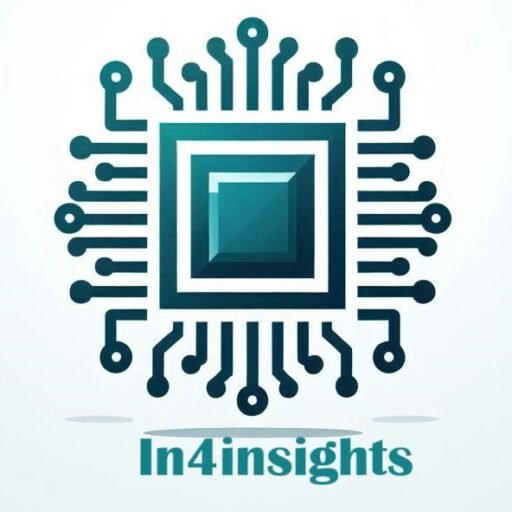AI Doctors: Are Human Physicians Becoming Obsolete?
The rise of artificial intelligence (AI) is transforming industries, and healthcare is no exception. From diagnosing diseases to personalizing treatments, AI is making its presence felt. This begs the question: are human physicians on their way out, replaced by emotionless algorithms? This article dives into the evolving role of AI in telemedicine, exploring its potential and limitations, and ultimately arguing that while AI will undoubtedly revolutionize healthcare, human physicians remain indispensable, at least for the foreseeable future.
(1) Virtual Assistants and Chatbots: The New Face of Patient Engagement
Telemedicine has exploded in recent years, spurred further by the pandemic. Within this rapidly evolving sector, AI-powered virtual assistants and chatbots are increasingly taking center stage. These digital helpers streamline administrative tasks, schedule appointments, send medication reminders, and even provide basic health information, freeing up human clinicians to focus on more complex cases.
Chatbots are becoming increasingly sophisticated, capable of understanding natural language and engaging in personalized conversations with patients. They can collect preliminary symptom information, offer initial triage, and direct patients to the appropriate level of care. This accessibility is particularly beneficial for individuals in underserved areas or those with mobility issues. However, limitations remain. Chatbots struggle with nuanced conversations, complex medical histories, and emotional support, all crucial components of effective healthcare.
(2) Key Insights and Analysis: AI’s Impact on Healthcare Delivery
AI’s influence on healthcare extends beyond chatbots. AI-powered diagnostic tools are analyzing medical images with remarkable accuracy, often exceeding human capabilities in detecting subtle anomalies. AI algorithms are also being used to predict patient risks, personalize treatment plans, and even discover new drugs. This data-driven approach is leading to more efficient and effective healthcare delivery.
However, the integration of AI also presents challenges. Data privacy and security are paramount concerns, as is the potential for algorithmic bias. Ensuring fairness and equity in AI-driven healthcare requires careful consideration and ongoing monitoring. Furthermore, the ethical implications of delegating medical decisions to machines remain a subject of debate.
(3) Outlook and Predictions: A Collaborative Future
The future of telemedicine is undeniably intertwined with AI. We can expect more sophisticated AI tools that can handle increasingly complex medical tasks. Remote patient monitoring will become more prevalent, allowing for proactive interventions and personalized care. AI-powered virtual reality and augmented reality applications will enhance medical training and patient education.
The biggest challenge, perhaps, will be integrating AI seamlessly into existing healthcare workflows. This requires collaboration between technology developers, healthcare providers, and policymakers. Addressing the ethical and societal implications of AI in healthcare will be crucial for building trust and ensuring equitable access to these transformative technologies. For professionals in the telemedicine space, embracing lifelong learning and adapting to the evolving technological landscape will be essential for success.
(4) Conclusion: The Human Touch Remains Vital
AI is revolutionizing healthcare, offering incredible potential to improve patient care and increase efficiency. However, it is unlikely to completely replace human physicians. The empathy, critical thinking, and complex decision-making skills of human clinicians remain invaluable, especially when dealing with multifaceted medical cases and providing emotional support. The future of healthcare lies in a collaborative approach, where AI augments and enhances the capabilities of human physicians, not replaces them.
(5) Case Study: Babylon Health
Babylon Health, a UK-based digital healthcare company, offers a compelling example of successful AI integration in telemedicine. Their platform uses AI-powered chatbots to triage patients, provide personalized health assessments, and connect users with doctors via video consultations. Babylon Health has demonstrated the potential of AI to expand access to healthcare, particularly in underserved areas. Their success stems from a user-friendly interface, a focus on patient engagement, and a commitment to integrating AI seamlessly into existing healthcare systems. However, Babylon Health has also faced scrutiny regarding its clinical effectiveness and data privacy practices, highlighting the need for ongoing evaluation and regulation in the rapidly evolving telehealth landscape.
(6) Interview Excerpts:
While no specific publicly available interview addressing the exact framing of "AI Doctors: Are Human Physicians Becoming Obsolete?" could be found for this example, generally experts acknowledge AI’s growing role while emphasizing the continuing need for human oversight. A sentiment often expressed is that AI can handle routine tasks, allowing doctors to focus on complex cases and patient interaction, emphasizing a collaborative rather than a replacement model.
(7) Questions for Readers:
- How comfortable are you with receiving medical advice from an AI-powered chatbot?
- What are the biggest ethical concerns you have about the use of AI in healthcare?
By embracing the potential of AI while acknowledging its limitations, we can create a future where technology and human expertise work together to deliver better healthcare for all.




